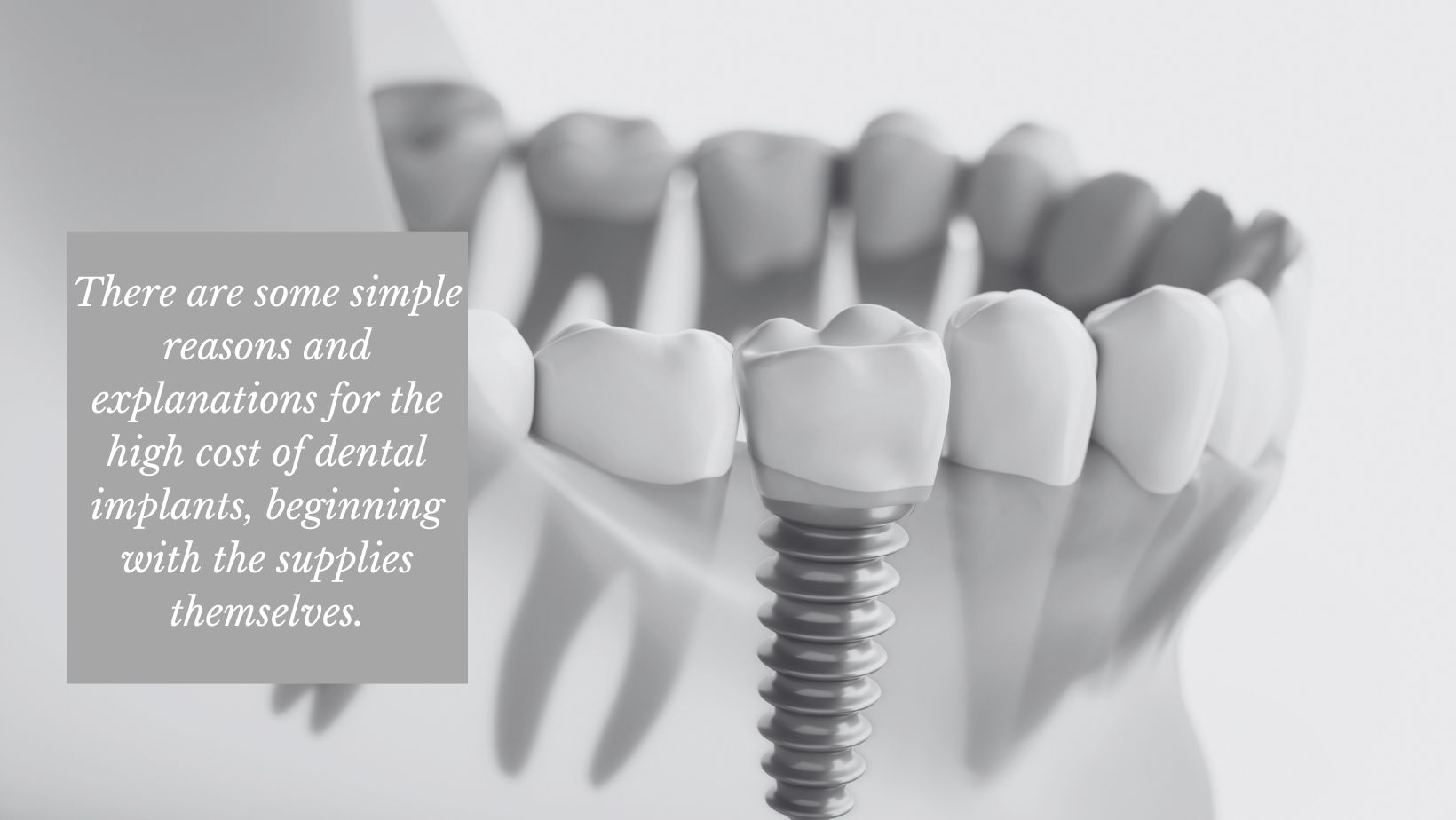For patients missing teeth, dental implants are an important investment in their oral and overall health. And the financial investment is significant, so finding ways to afford them is key to the decision. The nagging question of whether or not dental implants are covered by insurance can be difficult to research. Interpreting dental insurance benefits is often like navigating a minefield. When trying to figure out when and if dental implants are covered by a plan, it is often confusing even for folks who are well-acquainted with their benefits.
When are Dental Implants Covered by Insurance?
Short answer: Almost Never
Dental insurance is great for covering and protecting patients from the costs of preventative care like cleanings and x-rays, but that’s about it. Twice annual cleanings and maintenance are usually paid for, along with some other procedures like the occasional filling. Dental implants are typically defined as “cosmetic” and the vast majority of insurance plans simply do not pay for cosmetic dentistry.
What Dental Insurance Plans Do Cover Implants?
Short answer: Read the Fine Print
Most group or employer-based dental plans are structured to remain affordable and cover the basics. As soon as dental needs shift to high-ticket items like root canals, periodontal (gum) procedures, dentures, or implants, those expenses are typically applied towards the patient’s deductible.
Those shopping for dental insurance coverage are likely to run into what are called “waiting periods”. A waiting period is exactly what it sounds like and it’s designed to curb the insurance company’s costs. Insurers, to balance their overhead, require that an individual remains an active member for a certain period of time before unlocking certain benefits.
So, even when someone finds an affordable plan with a low deductible that will cover dental implants, that plan may subject them to a 6 or 12-month waiting period before those benefits kick in. If the missing tooth is causing dental or medical issues—not to mention the appearance of an incomplete smile—that can be a long time to wait.
Will Medicare Cover Dental Implants?
The short answer: No (with a caveat)
Teeth get fragile as we age, and many Medicare recipients find themselves in need of dental reconstructive surgery. Medicare, like most major dental plans, does not reimburse the cost of dental implants. Medicare A and Part B will only cover dental costs as they relate to pre-op visits for specific surgical procedures.
For any dental benefits, patients must enroll in a Medicare Advantage plan through a private insurance provider. As with most group, individual, or employer-sponsored dental plans, they may discover that their benefits do not extend far beyond routine and preventative maintenance.
Here is the caveat: As with our examples above, patients may be able to find an Advantage plan with dental benefits that include cosmetic procedures like implants. They should expect waiting periods will apply, however. Also, once they find that Advantage plan that happens to pay for cosmetic dentistry, they must also find an experienced oral surgeon who accepts that specific insurance. One way to begin the search is with our search tool. The Dental Health Society’s database is filled with dental professionals, including cosmetic specialists, all over the country.
How Much Do Dental Implants Cost?
The short answer: A Lot (but there is a range)
As any quick search will show, dental implants can be quite expensive. A dental implant for a single tooth typically costs about $5,000.
Getting an entire row of teeth starts at around $8,500, depending on how extensive the tooth loss is. The more significant the tissue and bone loss around the tooth, the more likely that bone grafting will be necessary. This simply compounds the cost and the complexity of the procedure itself.
Why are Dental Implants so Expensive?
The short answer: Equipment, Overhead, and Training
There are some simple reasons and explanations for the high cost of dental implants, beginning with the supplies themselves. An implant consists of three parts: the crown, the abutment, and the screw or post (that attaches to the jaw bone).

The basis of the implant itself is made of costly titanium. Cheaper materials don’t work as well, so there are only a few other options. That cost alone can be as much as $500 per crown. The abutment (the knob-like piece used to attach the crown to the implant), can cost anywhere from $100-200 per crown. If the dentist needs to perform a bone graft or implant membranes before the implant itself goes in, that can cost an additional $200.
In addition to the nearly $1,000 per tooth in hard supply costs, the dental office has to invest in imaging and fabrication equipment which can cost hundreds of thousands of dollars. Add to that renewal and access costs for software, licensing, and maintenance for that equipment. Of course, these are all rough estimates, but it at least illustrates how complex and refined a process it is. A dentist is, after all, making a unique, custom set of teeth for each individual.
As this is major dental surgery, the final line item to consider is labor. Dental implant training is not typically included in standard dental school training, so becoming a certified oral surgeon requires extra schooling, time, and, of course, money. Patients are paying for that experience and expertise.
Experienced dentists need to be paid for their time, and they will charge market rates based on their location. So, if they are in an expensive city, or renting space in an exclusive or desirable location, those considerations drive up the cost of surgery too.
What are the Next Steps in Finding a Dentist for Dental Implants?
Short answer: Compare Prices and Weigh Your Options
As discussed above, oral surgery is a dental specialty that requires additional schooling and training. There are quite a few options when it comes to finding an experienced oral surgeon. You can start with the providers that accept your insurance (including your current provider) for referrals. Using our online tool for searching and comparing trustworthy surgeons with up-to-date facilities and equipment is also an excellent way to find a provider and schedule a consultation.


